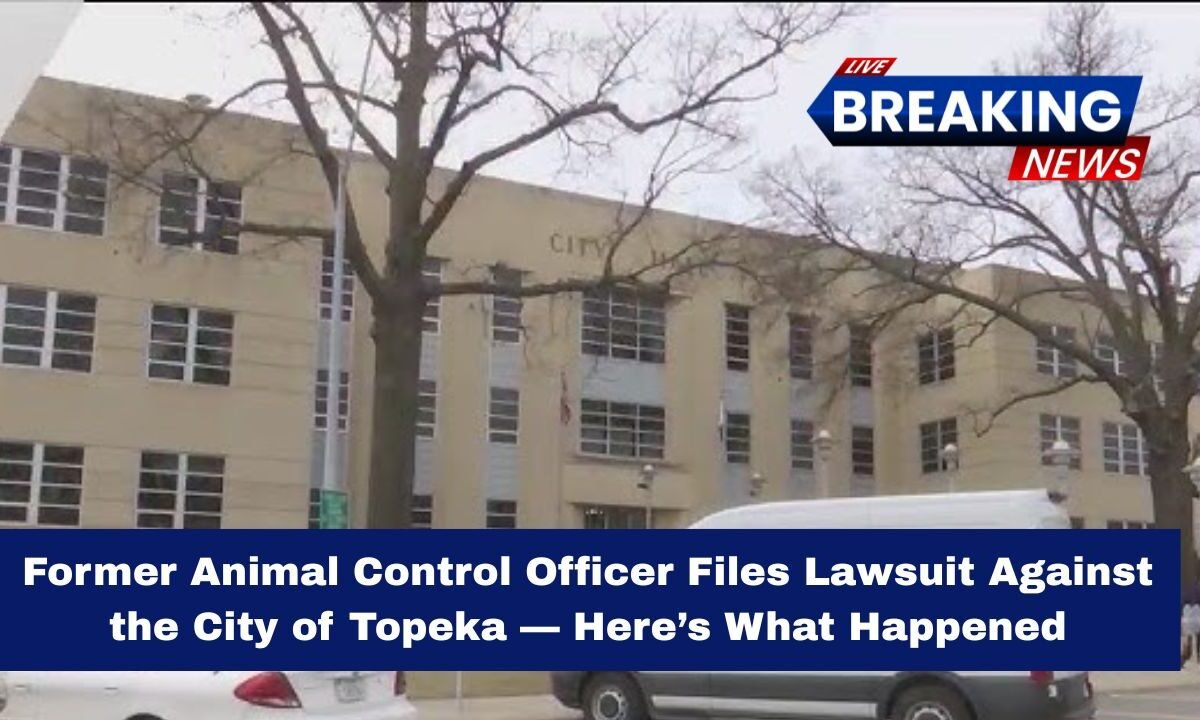A former City of Topeka animal control officer, Lisa Pinkley, has filed a lawsuit against the city, alleging age discrimination and retaliation connected to events dating back several years.
The lawsuit highlights internal workplace conflicts, claims of unfair treatment, and concerns about how the city handled hiring and internal complaints.
The case has drawn attention due to its focus on employment rights within a public agency.
Background of the Dispute
The roots of the lawsuit stretch back to 2019, when Pinkley filed an internal complaint accusing the city of engaging in unlawful employment practices.
She claimed that after filing the complaint, she overheard supervisors discussing and mocking her allegations, which she believes created a hostile work environment.
In 2020, Pinkley made the decision to retire from her position as an animal control officer. Her lawsuit states that the circumstances surrounding her earlier complaint contributed to her decision to leave.
The 2024 Rehiring Controversy
In 2024, Pinkley attempted to return to her previous job when a vacancy opened in the Animal Control Unit.
According to her lawsuit, she possessed the experience, training, and qualifications needed to resume the role. However, the city ultimately hired another candidate.
Pinkley argues that this decision was not based on merit.
She alleges that the individual selected for the position was less qualified, and that her own rejection was influenced by age bias and retaliation tied to her earlier complaint.
Claims Made in the Lawsuit
Pinkley’s lawsuit alleges the following:
- Age Discrimination: She claims the city favored a younger applicant despite her long record of service and qualifications.
- Retaliation: She alleges the city’s hiring decision was influenced by her 2019 complaint and the subsequent tension with management.
- Hostile Environment: She claims supervisors’ comments and behavior following her complaint contributed to a work environment in which she felt targeted.
- Unfair Hiring Practices: The lawsuit argues that the selection process for the 2024 position lacked fairness and transparency.
Pinkley is seeking unspecified damages, including compensation for lost income, emotional distress, and harm to her professional reputation.
City’s Response
City officials have not issued detailed public statements about the lawsuit. During a city council meeting, representatives declined to comment, citing the fact that the case is now part of ongoing litigation.
Public agencies typically limit statements on active lawsuits to avoid influencing legal proceedings.
Why This Case Matters
Pinkley’s lawsuit raises broader questions about municipal hiring practices and workplace protections for employees who report concerns.
Cases involving public entities often attract attention due to the expectation that taxpayer-funded organizations should uphold high standards of fairness and accountability.
The outcome may influence:
- How Topeka evaluates internal complaints
- Hiring and rehiring procedures for former employees
- Policies related to age discrimination and retaliation
- Training and oversight for managers in public departments
Employee discrimination cases within city departments can also prompt changes to human resources operations, performance review systems, and complaint-handling procedures.
Key Case Facts
| Category | Details |
|---|---|
| Plaintiff | Lisa Pinkley |
| Defendant | City of Topeka |
| Core Claims | Age discrimination, retaliation |
| Initial Complaint | Filed internally in 2019 |
| Retirement | 2020 |
| Re-application | Applied for animal control position in 2024 |
| Hiring Outcome | Another candidate selected |
| Damages Sought | Unspecified monetary compensation |
The lawsuit filed by former animal control officer Lisa Pinkley has placed a spotlight on how the City of Topeka handles internal complaints, rehiring processes, and allegations of discrimination.
As the case progresses, it may prompt policy reviews and procedural changes within the city’s departments.
The court’s decision will not only shape the resolution of Pinkley’s claims but may also influence how Topeka approaches future employee concerns, workplace culture, and public accountability.




